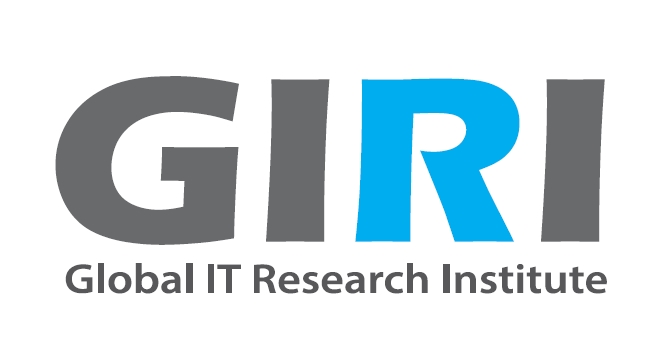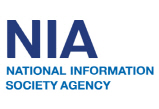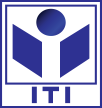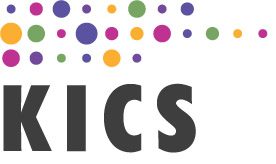Now 204 visitors
Today:604 Yesterday:1180
Total: 629
413S 88P 97R
2026-03-05, Week 10 |
| Member Login |
| Welcome Message |
| Statistics |
| Committee |
| TACT Journal Homepage |
| Call for Paper |
| Paper Submission |
| Find My Paper |
| Author Homepage |
| Paper Procedure |
| FAQ |
| Registration / Invoice |
| Paper Archives |
| Outstanding Papers |
| Author Homepage |
| - Paper Procedure |
| - Journal Procedure |
| - Presentation Tips |
|
| Program / Proceedings |
| Program with Papers |
| Plenary Session |
| Tutorial Session |
|
| Presentation Platform |
| Hotel & Travel Info |
| About Korea |
| Accommodation |
| Transportation |
| VISA |
| Other Infomation |
|
| Photo Gallery |
| Scheduler Login |
| Seminar |
| Archives Login |
|
| Sponsors |

|

|

|

|

|

|

|

|

|

|

|

|
|
|
|
|
|
2012
 |
Title : Chip-Level Space-Time Coding for Next Generation MIMO Systems |
|
Time : 17:00~17:45 Feb. 20, 2012 |
|
Speaker : Distinguished Prof. Hsiao-Hwa Chen, National Cheng Kung University, Taiwan
Hsiao-Hwa Chen is currently a Distinguished Professor in the Department of Engineering Science, National Cheng Kung University, Taiwan. He obtained his BSc and MSc degrees from Zhejiang University, China, and a PhD degree from the University of Oulu, Finland, in 1982, 1985 and 1991, respectively. He has authored or co-authored over 400 technical papers in major international journals and conferences, six books and more than ten book chapters in the areas of communications. He served as the general chair, TPC chair and symposium chair for many international conferences. He served or is serving as an Editor or/and Guest Editor for numerous technical journals. He is the founding Editor-in-Chief of Wiley’s Security and Communication Networks Journal www.interscience.wiley.com/journal/security. He is the recipient of the best paper award in IEEE WCNC 2008 and a recipient of IEEE Radio Communications Committee Outstanding Service Award in 2008. He is a Fellow of IEEE, a Fellow of IET, and a Fellow of BCS.
Abstract :
Space-time coding plays a critical role in separation of signal transmissions via different transmitter and receiver pairs, and thus it lays a foundation for implementation of MIMO technology, which is capable to offer powerful spatial diversity gain and/or multiplex capability without consuming precious bandwidth resources. Unfortunately, all currently available space-time coding schemes were proposed based mainly on bit-level block coding or trellis coding schemes, and their performances are extremely sensitive to multi-user interference and multipath interference. This talk presents a tutorial on chip-level space-time coding, which works based on three-dimensional spreading coding. Different from the traditional bit-level space-time coding, the chip-level space-time coding is very robust due to its superior interference-resistant performance, and it is in particular suitable for its applications in futuristic wireless communications where both multi-user interference and multipath interference are present. In addition, the chip-level space-time coding offers a unique paradigm, in which space-time coding can be designed jointly with the user signature codes in a code division multiple access system as an effort to optimize the system performance as a whole.
|
 |
Title : Mobile e-Government Services in Smart Society
|
|
Time : 17:45~18:30 Feb. 20, 2012 |
|
Speaker : Executive Director. Young-il (Victor) Kwon, National Information Society Agency (NIA), Korea
Young-il (Victor) Kwon is Executive Director of Information Resource Division at the National Information Society Agency (NIA) while managing the Public Information Support Center (PISC) and e-Government Standard Framework(eGovFrame) Center. He has worked for 15 years on the National IT Infrastructure, e-Government project and information resource management since 1997. He had worked at the Mexico-Korea IT Cooperation Center (ITCC MEXKOR) as an IT consultant for three years (Nov. 2003~ Oct. 2006). His job experience is mainly at the fields of broadband infrastructure and IT strategy planning at the public sector with Ministry of Information and Communications (MIC) and Ministry of Public Administration and Security(MOPAS). Prior to joining the NCA(National Computerization Agency, former NIA), he worked as a assistant manager in the private sector during 4 years. Mr. Kwon received his Master degree of Telecommunications from Korea Advanced Institute of Science and Technology (KAIST) in 1998.
Abstract :
The global world is rapidly turning into paradigm shift from a knowledge-based society into a smart society. Most people use smartphone services which include high-resolution video, web sites and high-speed data access via Wi-Fi and mobile broadband. Wireless devices like smartphone, smart Pad and smart TV are leading a convenient and productive lifestyle. And the smart work system allows people to work outside of the office. Besides, Social networking services like Twitter and Facebook are not only used to create a human network but also contribute in creating a voice for the people, which was a traditional role of the media.
Meanwhile, m-Government is the extension of e-Government to mobile platforms as well as the strategic use of government services and applications which are possible using mobile telephones, smart pad and wireless internet infrastructure. It can help make public information and government services available "anytime, anywhere" and that the mobility of these devices mandates their employment in government functions. In the presentation, it will be delivered on the trend of mobile services and the challenge of e-Government services and the case of m-Government services in Korea. He will present on the mobile e-government framework and the open government data initiative and the goals of the open data for providing the mobile e-Government services in smart society
|
|
|
|
|
ⓒ Copyright 1999. ICACT (ISSN 1738-9445) & Global IT Research Institute(GiRI) All rights Reserved. Contact: office (at) icact . org Tel:+82-70-4146-4991
|
1713 Obelisk, 216 Seohyunno, Bundang-gu, Sungnam Kyunggi-do, Republic of Korea 13591
Business License Number : 220-82-07506, President: Thomas ByeongNam Yoon Ph.D. |
|
(13591)경기도 성남시 분당구 서현로 216 오벨리스크 1713호
(사)글로벌IT연구회 사업자등록번호 : 220-82-07506 대표자 : 윤병남
|
|
| |






